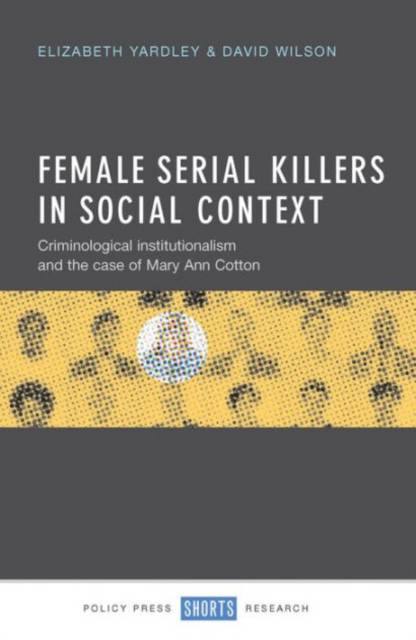
- Afhalen na 1 uur in een winkel met voorraad
- Gratis thuislevering in België vanaf € 30
- Ruim aanbod met 7 miljoen producten
- Afhalen na 1 uur in een winkel met voorraad
- Gratis thuislevering in België vanaf € 30
- Ruim aanbod met 7 miljoen producten
Zoeken
Female Serial Killers in Social Context
Criminological Institutionalism and the Case of Mary Ann Cotton
Elizabeth Yardley, David Wilson
Hardcover | Engels
€ 61,45
+ 122 punten
Omschrijving
To date, approaches to understanding serial murder have focused on individual cases rather than the social context in which they occurred. Written by leading criminologists and world experts on serial murder, this book marks a departure by situating nineteenth century serial killer Mary Ann Cotton within the broader social structure. Using archival records of her court appearances, local histories and newspaper articles, it uniquely explores how institutions such as the family, economy and religion shaped the environment she inhabited and her social integration through the roles of wife, mother, worker and criminal. Acknowledging that it takes a particular type of individual to commit serial murder, the book shows that it also takes a particular type of society to enable that murderer to go unseen. As the first work to analyse serial murder through the theoretical framework of institutional criminology and institutional anomie theory, it will equip criminologists with a methodological toolkit for performing institutional analysis.
Specificaties
Betrokkenen
- Auteur(s):
- Uitgeverij:
Inhoud
- Aantal bladzijden:
- 96
- Taal:
- Engels
Eigenschappen
- Productcode (EAN):
- 9781447326458
- Verschijningsdatum:
- 1/08/2015
- Uitvoering:
- Hardcover
- Formaat:
- Genaaid
- Afmetingen:
- 130 mm x 201 mm
- Gewicht:
- 226 g

Alleen bij Standaard Boekhandel
+ 122 punten op je klantenkaart van Standaard Boekhandel
Beoordelingen
We publiceren alleen reviews die voldoen aan de voorwaarden voor reviews. Bekijk onze voorwaarden voor reviews.











